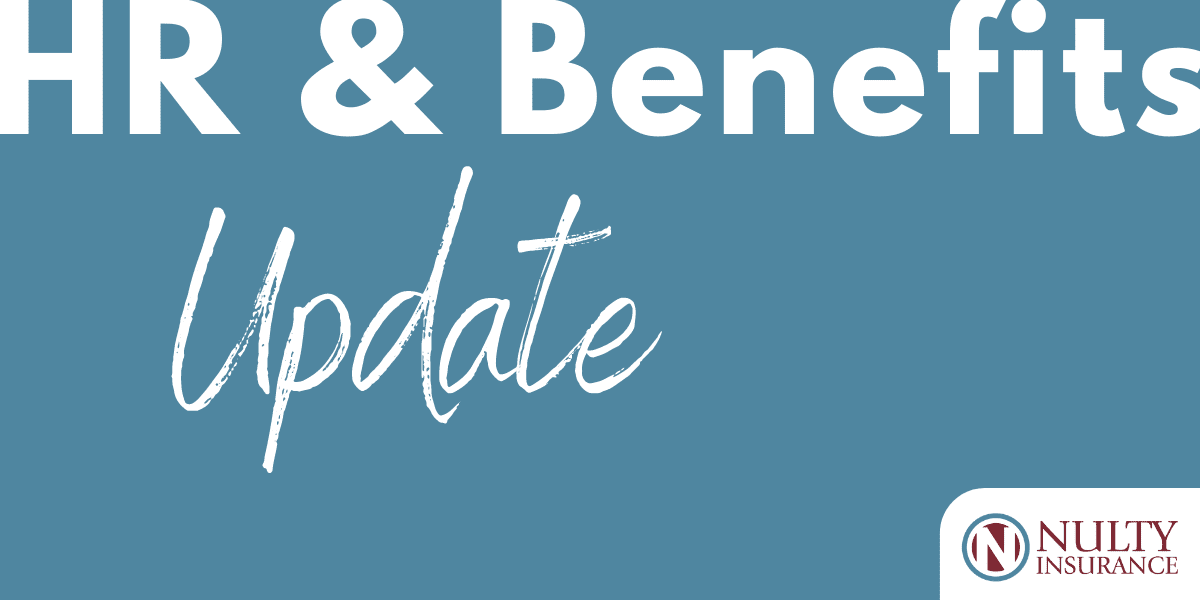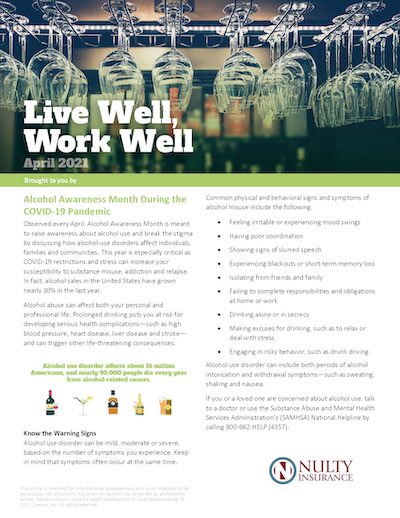
🗓️ June 2021 Updates
MIOSHA Updates Workplace COVID-19 Emergency Rules
May 24th was a much anticipated day for all of us as Governor Whitmer announced updates to MIOSHA’s COVID-19 emergency rules, which supersedes the prior versions – October 14, 2020, and the April 13th extension. These updated rules are to remain in effect until October 14, 2021, as follows:
- The following are workplace controls that employers are STILL REQUIRED to perform:
Have a written COVID-19 preparedness and response plan, but are no longer required to categorize job tasks and procedures into different risk categories or include this information in the plan. - Basic infection prevention to include: promote frequent and thorough hand washing, provide antiseptic hand sanitizer, prohibit entry into the workplace for symptomatic employees, employees who have tested positive, and non-vaccinated close contacts, increase facility cleaning per the CDC and use EPA-approved disinfectants.
- Conduct a daily health screening protocol for employees or contractors entering the workplace (visitors are exempt) including a questionnaire regarding COVID symptoms or suspected or confirmed exposure to people with possible COVID-19, but are no longer required to conduct temperature screening of employees.
- Require employees to promptly report COVID-19 signs/symptoms and employers must isolate, send home, and require remote work for persons known or suspected to have COVID-19; prohibit employees from entry until isolation/quarantine requirements are fulfilled.
- Notify co-workers, contractors and suppliers who may have come into contact with a person with a known case of COVID-19.
- Comply with the Michigan COVID-19 Employee Rights Act.
- Have a COVID-19 Safety Coordinator.
- Ensure unvaccinated employees remain 6-feet apart to the maximum extent feasible.
- Provide masks to unvaccinated employees and require them to wear while indoors if they cannot maintain 6-feet of separation from others.
- Provide training to employees on COVID-19 to reflect these revised requirements and should include information on vaccinations available for COVID-19.
- Maintain the daily entry screening records; however, they are only required to be maintained for 6-months versus 12-months for unvaccinated individuals.
The following are COVID-19 workplace controls are OPTIONAL for employers:
- Keep records of whether employees are fully vaccinated.
- Post signs in the workplace reminding employees who are not fully vaccinated to wear face coverings and to maintain appropriate distancing.
- Allow or require remote work.
- Require face coverings and social distancing for all employees regardless of vaccination status.
The following are COVID-19 workplace controls employers are NO LONGER REQUIRED to do:
- Prohibit in-person work.
- Have COVID-19 Safety Coordinator on-site at all times when employees are present.
- Place posters encouraging employees to stay away when sick and perform proper COVID-19 sanitization practices.
- Require vaccinated employees to social distance and it’s NO longer necessary to display ground markings, signs and physical barriers to reduce congestion.
- Temperature screen.
- Notify the local health department of a positive COVID-19 test involving an employee, visitor or customer.
- Have established procedures for cleaning/disinfecting for “high touch” surfaces or shared equipment.
- Have established procedure specifically related to suspected/confirmed employee, visitor or customer.
- Provide non-medical grade face coverings to fully vaccinated persons and no longer require fully vaccinated employees to wear face coverings (exception is healthcare settings where patients present and airplane and public transportation).
- Require masks for any employee who can consistently maintain 6-feet of separation from others in the workplace, require masks in all common spaces and employees working outdoors.
- Include COVID-19 exposure determination in the Preparedness Plan.
- Prohibit employees from using others’ phones, desks and offices.
- Maintain daily health screening protocols for fully vaccinated individuals.
IRS Releases Guidance on Dependent Care Benefits – Carryovers
On May 10th, the IRS released Notice 2021-26 which provides guidance on the taxability of dependent care assistance programs (DCAPs) for 2021 and 2022, clarifying the amounts attributable to previously issued carryover and extended grace period relief generally are not taxable.
Specifically, these dependent care benefits would have been excluded from income if used during taxable year 2020 (or 2021, if applicable), these benefits will remain excludible from gross income and are not considered wages of the employee for 2021 and 2022.
IRS Issues Guidance on Taxability of DCAP Benefits for 2021, 2022.pdf
HSA/HDHP Limits Increase for 2022
On May 10th, the IRS provided the inflation-adjusted limits for HSAs and HDHPs for 2022. These limits include maximum HSA contribution limit, minimum deductible amount for HDHPs and maximum out-of-pocket expense limit for HDHPs.
Eligible individuals with self-only HDHP coverage will be able to contribute $3,650 to their HSA’s for 2022, which is up from $3,600 for 2021.
Eligible individuals with family HDHP coverage will be able to contribute $7,300 to their HSAs for 2022, up from $7,200 for 2021.
Individuals who are age 55 or older are permitted to make an additional $1,000 “catch-up” contribution to their HSAs.
2021 Patient-Centered Outcomes Research Institute (PCORI) Fee
The PCORI fee deadline is around the corner and the IRS adjusted the applicable dollar amount to be multiplied by the average number of covered lives for purposes of calculating the fee for policy years and plan years that end on or after October 1, 2021. The fee for the period is $2.66.
Although the PCORI fee is based on the plan year, the reporting and fee due date is July 31st. However, for 2021 the deadline will be August 2nd since July 31st falls on a Saturday.
The ACA requires health insurers and sponsors of self-funded group health plans to pay the fee using IRS Form 720. The fee is based on covered lives so both employees and retirees and their covered spouses and children must be counted.
IRS Provides Guidance on COBRA Subsidy Questions
On May 18th, the IRS issued Notice 2021-31, which provides guidance in the form of 86 Q&A’s related to the COBRA subsidies under the ARPA. This guidance addresses a variety of key points including: eligibility for COBRA subsidy, involuntary termination of employment, coverage eligible for COBRA subsidy, COBRA elections under ARPA and subsidy periods, calculation of the Medicare Tax Credit and Claiming the Medicare Tax Credit.
For your convenience, please see IRS FAQ’s on COBRA Subsidies.pdf as it is a shortened and more reader-friendly version of the IRS Notice.
The EEOC Issued Guidance on Offering Incentives to Employees to be Vaccinated
The EEOC issued guidance on May 28th that, under EEO laws, employers may offer limited incentives to employees to be vaccinated, so long as the incentives are not coercive. But the agency cautioned that a “very large incentive” could make employees feel pressured to disclose protected medical information.
EEOC – What You Should Know About COVID-19 & the ADA
(See section K, Questions, #1 – #18)


